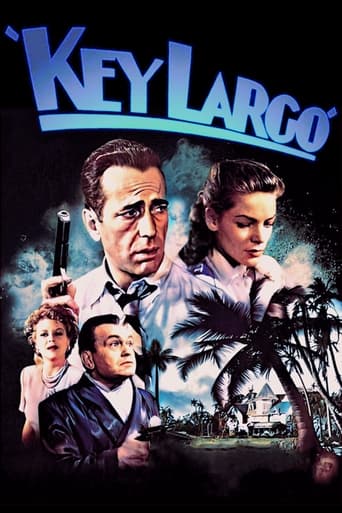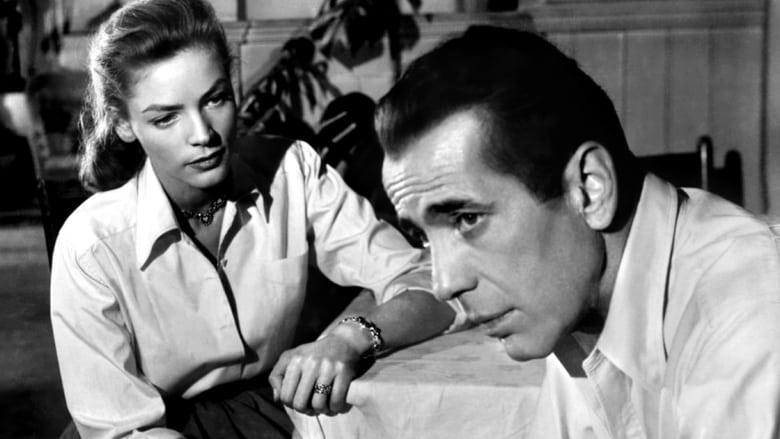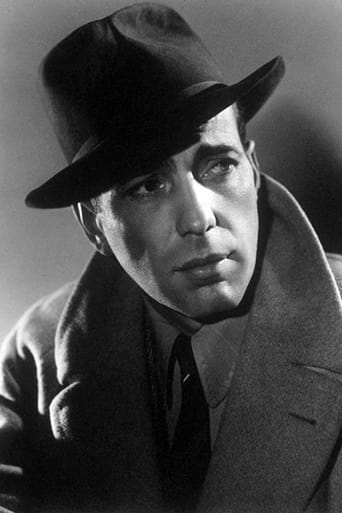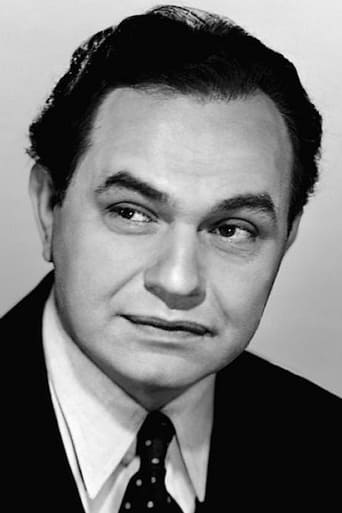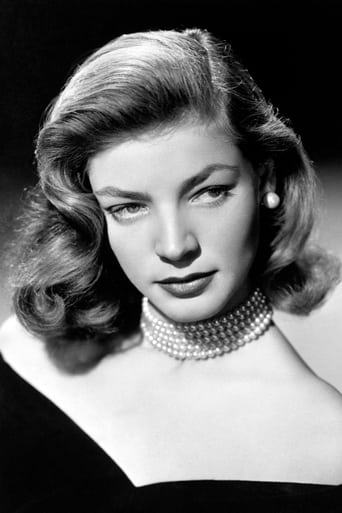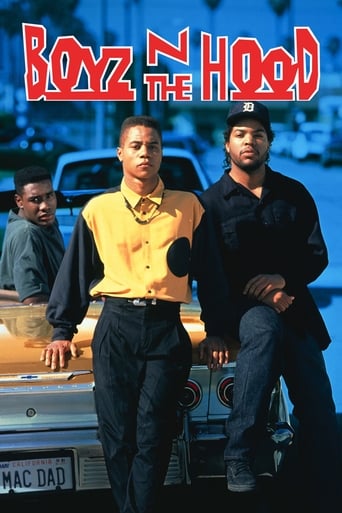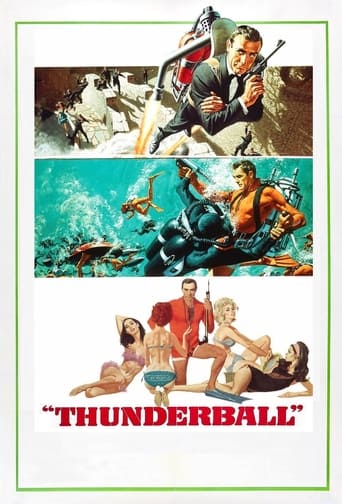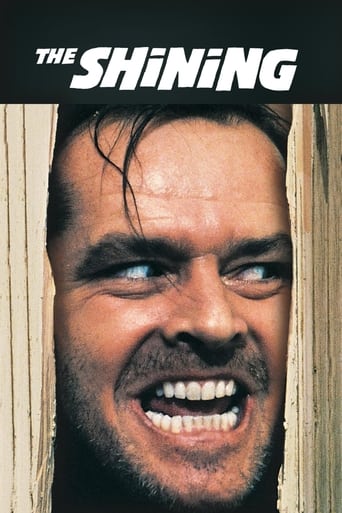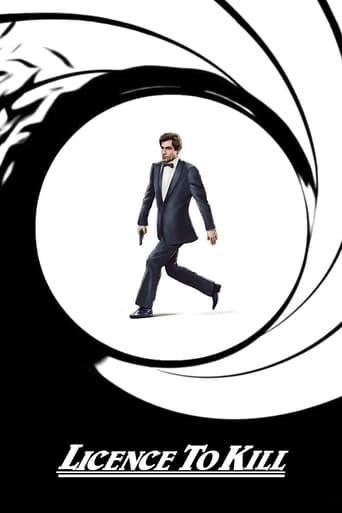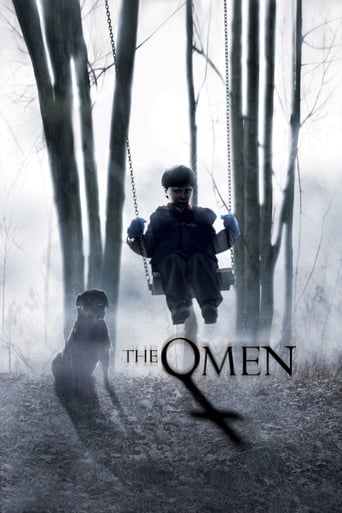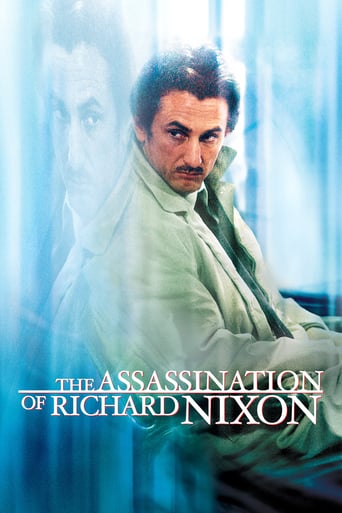Key Largo (1948)
A hurricane swells outside, but it's nothing compared to the storm within the hotel at Key Largo. There, sadistic mobster Johnny Rocco holes up - and holds at gunpoint hotel owner James Temple, his widowed daughter-in-law Nora, and ex-GI Frank McCloud.
Watch Trailer
Cast


Similar titles
Reviews
So much average
Fun premise, good actors, bad writing. This film seemed to have potential at the beginning but it quickly devolves into a trite action film. Ultimately it's very boring.
It's the kind of movie you'll want to see a second time with someone who hasn't seen it yet, to remember what it was like to watch it for the first time.
This is one of the best movies I’ve seen in a very long time. You have to go and see this on the big screen.
Movie Review: "Key Largo" (1948)A great summer event movie of a movie theater-racing 100 minutes distributed by Warner Bros. Pictures under ruling principal Jack L. Warner (1892-1978) making way for directing in contractions by respected as talented filmmaker John Huston (1906-1987), who directs a Hollywood high-society ensemble with leading Humphrey Bogart (1899-1957) as drifting Frank McCloud, real-life wife Lauren Bacall (1924-2014) in beauty tans, Academy-Award-winning supreme support actress Claire Trevor (1910-2000) as Gaye Dawn, a stranger hotel inhabitant and show-stealing Edward G. Robinson (1893-1973) as upscale "Capone" seconds "Johnny Rocco", whose character then rules a storm-sieged hotel at the title-given Southern Florida location sight in moody black-and-white cinematography by Karl Freund (1890-1969), known for galvanizing Fritz Lang's "Metropolis" (1927), when composer Max Steiner (1888-1971) recues the pretentious, nevertheless brief-entertaining motion picture of being just a screen-adaptation of an already location-restricted, but highly-successful Broadway stage-play by Maxwell Anderson (1888-1959), when Hollywood major marketing strategies monetize from the fourth and final on-screen collaboration of perfect chemistry, sweet illusion selling team Bacall/Bogart after "Dark Passage" (1947), the much more accomplished "The Big Sleep" (1946) directed by Howard Hawks and timid early young beginnings with "To Have or Have Not" also-directed by Hawks with close ties to an exceptional Filmstar-caring studio major at Warner Bros. Pictures.© 2018 Cinemajesty Entertainments LLC
simple great. for performances, sure. but, in same measure, for the splendid atmosphere. who remains unique. because it is slice of a period.a period with its heroes, values and faiths. with its sensitivity and force of suggestion. a film who could reminds many roles of Bogart and Robinson and Bacall. and who reminds the great talent of Lionel Barrymore . a film of atmosphere, special in each aspect, impressive at whole, it is just a masterpiece.
People often criticize this movie for really not being much more than a filmed play. Yeah! So what's wrong with that when the characters are three dimensional and the actors are brilliant. This movie gets dull only when it moves out of the hotel (the stage) and becomes a traditional action movie. The black and white photography is brilliant (I once saw it colorized and it was dreadful). The production design is perfectly honest. The direction is so clear and unpretentious; when you have faces as brilliant as these, you gotta take advantage of closeups. There is not one less than outstanding performance. Bacall's role doesn't call for her to do a lot of "acting" and as a result, she is very moving. Trevor had tough competition for her Oscar that year and she won because she understood that too much restraint would have been wrong yet she never goes too far. Bsrrymore is unusually tough and commanding, almost heroic against the thugs. Bogart is quiet and direct and when he gives Trevor her drink has the most powerful moment in the movie. Robinson? It is a real showy role, and Edward knew what not to do. He is savage. And he almost is sexy when he gets Claire to sing her song but he can revert to a monster within seconds and give the audience chills. It really is his movie. Gomez and his fellow stupid thugs are funny at times but the script is unusually honest and barbaric. Take away their guns and these guys are wimps. But why didn't they just stay in the hotel? The shootout at the end could have been done that way. The escape to Cuba isn't believable or compelling. Those who call this movie slow, just don't get it. They don't understand that artists use pacing for effect. Today's generation loving special effects and action and over-the-top acting will hate this movie. Their loss. And the loss for the future of film and theatre.
Released in 1948, John Huston's "Key Largo" is a Post-War movie. Obviously. In this suffocating behind-closed-doors thriller, the moral relics of the War sweats out the characters' pores, with the obligatory evil : Johnny Rocco, played by an exquisitely confident Edward G. Robinson, and a self-doubting good side incarnated by a former WW2 veteran: Bogart as Frank McCloud, Lionel Barrymore as the father of his ill-fated Army buddy George, and as Nora, the precocious widow, Lauren Bacall in her fourth and final co-starring with her legendary husband.Swinging between, there's Oscar-winning Clair Trevor as Rocco's moll, Gaye Dawn, desperately seeking for a last drop of alcohol, how much she drinks says a lot about the wounded past she has to conceal, something Frank, the only one to give him a drink, can relate to. A former idealist probably, Frank had to fight with the assurance that his death would have a meaning: clearing the world of its poisoning vileness and barbarity. Yet Rocco stands for everything Frank fought against and is very much alive and cynically proud of his achievement.Men like Rocco highlight the pointlessness of George's death and that's what the Film-Noir genre is about, disillusion, the same after the victory's euphoria was toned down by the uncertainty of the world's fate, at the dawn of the Atomic Age. Who could put his faith in human nature after that? "Key Largo" is one of the most quintessential film-noir. War is the prominent shadow of Frank's past and the light of hope is this visit to Florida, an escape from the pessimism inherited from the past and the certitude that George's death was the ransom for a better world, seeking the real Post-war peace, peace of mind, but the light at the end of the tunnel might be of a passing train, a train named Johnny Rocco who'd confront Frank to the very demons he's escaping from.And in the pivotal moment when Rocco dared Frank to shoot him, Frank chose to drop his gun. There would be plenty of Roccos to take his place anyway, like the War didn't deprive the world from scum or evil. For long as there will be men, there will be wicked ones, so why should the good ones die to leave room for them? That dilemma is perfectly captured by Gaye Dawn's line "Better to live a coward or die a hero", which in Frank's mind resonates as, "calculated weakness can be more resourceful than pointless bravery". There's no point in heroism if it's deemed to fail, it's as meaningless as being called a coward.If not a hero, Frank is an existential character, because his life is worthier than his cause, if only to better serve the cause. It's not the action that counts, it's the one you do according to your personal beliefs. Basically, Frank's self-preservation commanded him not to waste his life for Rocco or for the sake of peer pressure. And who could ever think of him as a coward? Whether for giving a drink, taking a few slaps (and what slaps!) and shielding Nora, Frank never acted brave, he was brave ... something he might've learned from the War, like Patton said "you don't win a war by dying for a country, but by making the other bastard die".George might've been a hero, but it was Frank smelling Florida coolest breezes and toying with Nora's beautiful hair. Life isn't an act, it's reality and reality commands to accept some bits of failure, the quintessential Hustonian theme. All Huston movies are about characters who try to escape from their inner condition but fail because they're essentially tragic. Rocco's success was Frank's failure, the living incarnation of his bitterness and anger toward the world. But being a failure is one thing but no Hustonian character is a loser, the relative quietness of Frank is only the silence before the storm, after the real one would be over.Indeed, Frank knew that he had to fight no matter what, postponing the time of the confrontation wouldn't avoid it and it's only after Rocco kills the innocent Indians (Sawyer took a chance and wasn't a 'civilian') that Frank makes up his mind. He knows killing Rocco won't change anything, but not killing him would leave a much more indelible stain in his soul. He had to act, that was his destiny as a fighter, a soldier, a man of morality who wouldn't let the killing of the two innocents get unpunished. An existential character gives a meaning to his acts, but paradoxically, believes that he's got but one destiny. He chooses what to do but most times, there's only one thing to do.And the climax conveys the fascinating paradox. Frank, now dispassionate, cold and methodical, eliminates the bad guys one by one, killing the last demon who'd ever have to torture his soul. This is the light of excitement that ignite Bogie's eyes while staring at that door from the boat's rooftop before Rocco would show his face for a last time. He knows he's going to accomplish himself once and for all and really escape from his tormented past. Escapism is another symbolic device in Huston's oeuvre, full of people trying to transcend their own condition yet their quest for freedom or success lead them to a physical or moral entrapment.There's something of Fred C. Dobbs in Frank McCloud, something of The "Night of the Iguana" in "Key Largo", people isolated and entrapped to give the word 'escape' its fullest meaning. Frank wouldn't find peace in Florida but also the peace of this soul. A hurricane is ravaging the outside, but the climate is even more dangerous in the inside. It's escapism as the quest for any trapped soul and entrapment for any soul trying to escape its condition, you've got to earn it, whether you lose or fail. "Key Largo" was Frank's key to his own salvation.

